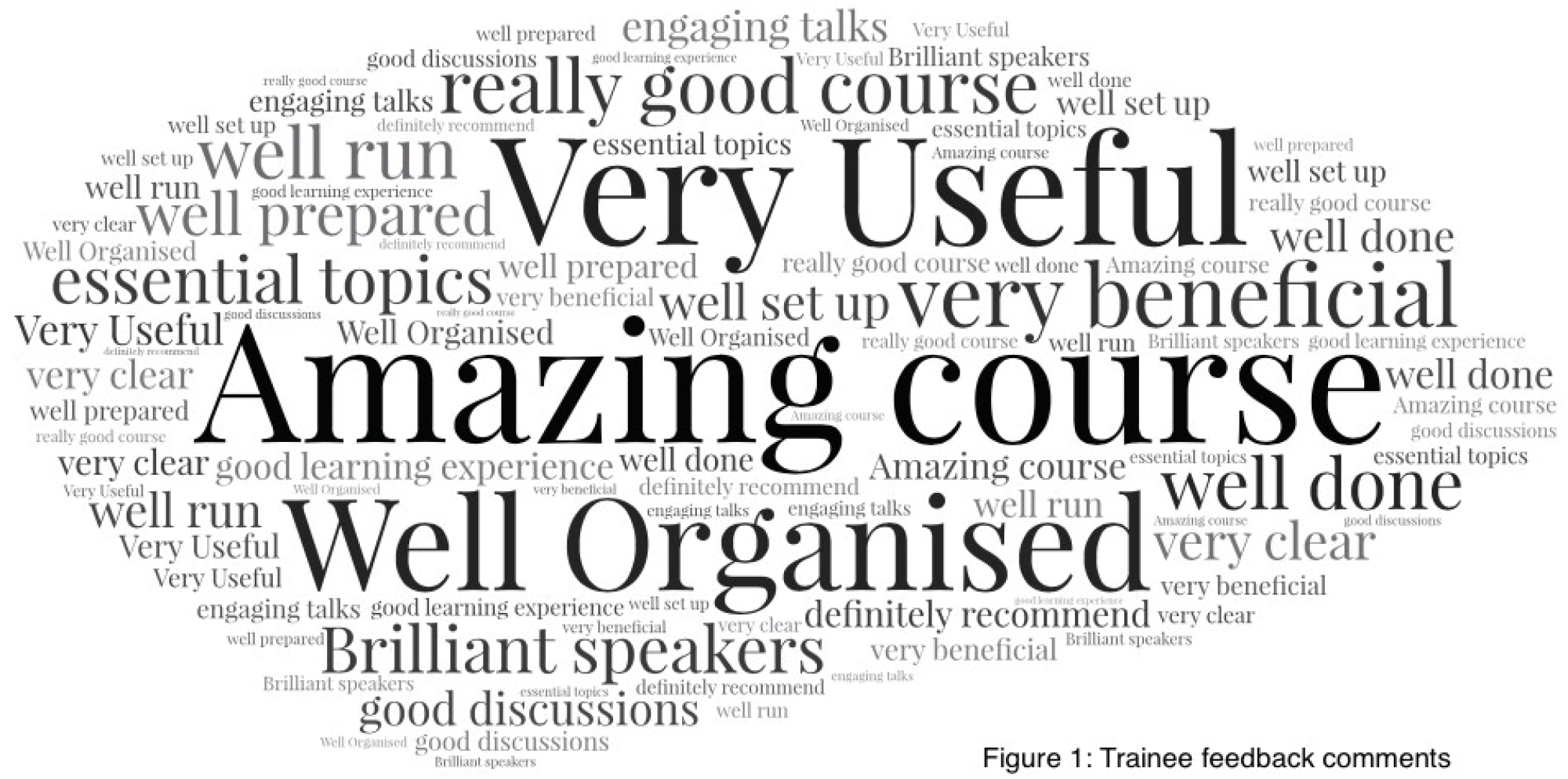
During the COVID-19 pandemic, remote consultations have replaced face-to-face appointments in many settings [1]. Over the past few decades simulation-based education (SBE), particularly standardised patients (SP) are being increasingly utilised to assess competency in patient care, especially regarding communication skills [2]. SBE with particular emphasis on human factors is now a mandatory part of medical training as per the new Internal Medicine Training (IMT) stage 1 curriculum which was introduced in 2019 [3]. This regional cardiology simulation and study day was designed with the aim of providing IMT trainees the necessary skill set to manage video consultations using simulated patient-care scenarios using SP as a simulation modality.
A one-day cardiology online course was created and delivered via an online platform (Zoom), comprising of a morning study session of frequented cardiology presentations tailored to IMT training curriculum followed by an afternoon session where each trainee got the opportunity to participate in two simulated video consultation scenarios. The theme of the scenarios included commonly encountered cardiology presentations in clinic setting such as heart failure, atrial fibrillation, ischemic heart disease, and syncope with particular emphasis on non-clinical skills surrounding effective communication, medico-legal challenges, and shared decision-making. Scenarios were delivered via SPs who were prebriefed with detailed scripts and guidance on specific areas of challenges to focus. In addition to group debriefing, all participants received individual written feedback from respective SPs after the course.
After the successful run of a pilot course in palliative care and cardiology during the COVID-19 pandemic, four courses were run during the current academic year, involving a total of 32 participants. Feedback demonstrated that all trainees were satisfied with the overall content of the course (Figure 1). 100% of trainees felt the course content improved their clinical capabilities with over 62% making major improvement in practice. Over 96% of candidates felt more confidence in dealing with the clinical scenarios in future. Mean grading of course satisfaction was 4.9/5.
The regional online cardiology study day and simulation course has been successfully in improving confidence in IMTs to carry out remote consultations in the post-pandemic era as well as equip them with clinical and non-clinical skills to manage a specialty clinic. Expanding this course design to other specialties will go a long way in improving confidence and skills of IMT trainees in managing online clinics as well as bridge gaps in opportunities to mandatory SBE in the region.


1. British Geriatrics Society. Remote consultations during COVID-19 and beyond. 26 February 2021. https://www.bgs.org.uk/resources/remote-consultations-during-covid-19-and-beyond [Accessed on 19/06/2022]
2. Gerzina HA, Stovsky E. Standardized Patient Assessment of Learners in Medical Simulation. Treasure Island (FL). StatPearls Publishing. 2022.
3. Joint Royal Colleges of Physicians Training Board. Curriculum for Internal Medicine Stage 1 Training. 2019. https://www.jrcptb.org.uk/sites/default/files/IM_Curriculum_Sept2019.pdf [Accessed on 19/06/2022]